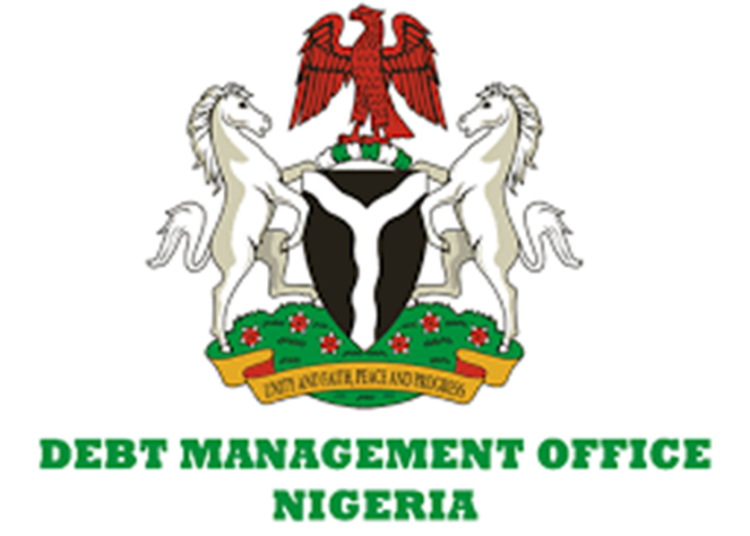Experts have expressed concerns about debt sustainability and potential risks like a debt trap and sovereign default.
Recent data from the Debt Management Office (DMO) showed that Nigeria’s total public debt stood at N149.39 trillion as of March 31, 2025, reflecting a sharp increase of N27.7 trillion, or 22.per cent, compared to the N121.67 trillion recorded in the same period of 2024.
The debt office attributed the hike to both increased borrowing and the impact of currency depreciation on external debt, particularly due to the naira’s devaluation.
Experts have recommended immediate fiscal reforms and improved revenue generation to address the situation.
Professor of economics at the University of Benin, Hassan Oaikhenan said the increasing debt burden on state and local governments is a major concern, as it could strain their ability to provide essential services.
He called for greater fiscal discipline and adherence to principles of responsible borrowing and spending.
“Reducing wasteful or non-essential spending is crucial to lower budget deficits,” he stated.
Analyst from Proshare Nigeria LLC, Teslim Shitta-Bey note that sub-national governments are also facing debt challenges, potentially impacting their fiscal stability.
A new report published on Friday by the DMO showed that public debt rose by N4.72 trillion, or 3.3 per cent, from the N144.67 trillion reported at the end of December 2024.
Of the total domestic debt, the federal government accounted for the lion’s share at N74.89 trillion, while sub-national governments and the Federal Capital Territory (FCT) held N3.87 trillion.
That marks a slight decline in state-level domestic debt from N3.97 trillion in the previous quarter and N4.07 trillion in Q1 2024, which could indicate improved debt servicing or a slowdown in new borrowings by states.
However, experts say the states ought to expedite payment of their debt since they have had increased revenue allocation from the Federal Account Allocation Committee (FAAC) since the removal of fuel subsidy.
The continued expansion in Nigeria’s debt profile has been largely attributed to additional borrowings by the federal government and the weakening of the naira, which has significantly increased the domestic currency value of external obligations.
The DMO stated that these developments have taken place amid ongoing fiscal challenges, with the government relying heavily on both local and international borrowing to finance its expenditure plans.
Breaking down the figures, external debt reached N70.63 trillion (equivalent to $45.98 billion) by the end of the first quarter of 2025. This marks an increase of N14.61 trillion or 26.1 per cent from the ₦56.02 trillion ($42.12 billion) reported in the first quarter of 2024.
On a quarter-on-quarter basis, external debt saw a marginal rise from N70.29 trillion in December 2024 — an increase of N344 billion or 0.5 percent.
Despite a relatively modest year-on-year increase of $3.86 billion in dollar terms, the depreciation of the naira has had an outsized impact on the debt figure when expressed in local currency.
The Central Bank of Nigeria (CBN) used an exchange rate of N1,330.26/$1 to convert the country’s external debt in Q1 2024. Although the exchange rate applied for Q1 2025 was not disclosed, the higher naira valuation of the debt suggests a further decline in the currency’s value.
Nigeria’s external debt includes facilities obtained from multilateral institutions such as the World Bank and African Development Bank, bilateral creditors, as well as commercial borrowings including Eurobonds.
The rising cost of debt servicing — exacerbated by the naira’s depreciation — has sparked concerns over the growing pressure on government finances. This comes at a time when the country is battling to enhance its foreign exchange reserves and restore currency stability.
Domestically, the country’s debt stock rose to ₦78.76 trillion ($51.26 billion) in March 2025, up from ₦65.65 trillion ($49.35 billion) a year earlier. This represents a year-on-year growth of ₦13.11 trillion or 20 percent. Relative to the fourth quarter of 2024, domestic debt increased by ₦4.38 trillion or 5.9 percent, rising from ₦74.38 trillion.
Of this domestic total, the federal government accounted for ₦74.89 trillion, while state governments and the Federal Capital Territory held ₦3.87 trillion.
This marks a slight decline from the ₦3.97 trillion recorded in the previous quarter and ₦4.07 trillion in the first quarter of 2024. The reduction may reflect either improved debt repayment at the sub-national level or a slowdown in new borrowing by the states.
In terms of composition, Nigeria’s debt portfolio has shifted slightly. By March 2025, domestic debt made up 52.7 percent of the total, while the external portion constituted 47.3 percent. This is compared to the previous year’s structure, where domestic debt accounted for 54 percent and external debt 46 percent
The increased share of external debt — particularly in naira terms — highlights the country’s heightened vulnerability to currency fluctuations, which continue to pose risks to sustainable debt management.











